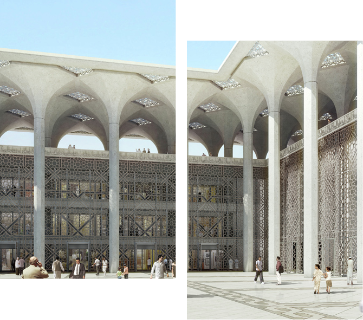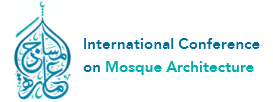
Is a scientific and professional bi-annual conference focuses on mosque architecture worldwide, this conference is managed by Abdullatif Alfozan Award for Mosque Architecture, it aims to encourage researches on mosque architecture, and it usually addresses various architectural topics on mosques, in which those topics could be philosophical, historical, esthetical, technical, structural, functional or digital.
The scientific content of each version of the International Conference on Mosque Architecture is being proposed by a scientific advisory committee and approved by the Executive Committee of the award. However, usually each topics of the conferences are derived from current issues on mosque architecture and in accordance with the main frame work of the Abdullatif Alfozan Award for Mosque Architecture.

The scientific committee for each version of the international conferences on mosque architecture is usually chosen from researchers and academics with international experience and specialists in mosque architecture, arts and studies, and nevertheless that the membership of the scientific committees is not only limited to architects, but usually it includes researchers in Islamic jurisprudence, structural engineering, religions, philosophy, social sciences, anthropology and history. Geographical, ethnic and cultural diversity is also taken into consideration to ensure that knowledge contains multiple international experiences and that mosque architecture research reaches the largest possible segment in the world. However, scientific committees usually work to review the best scientific research or architectural practices for presenting them at conferences.
Organizing committees for international conferences of mosque architecture are formed by the Secretary-General of the Abdullatif Alfozan Award for Mosque Architecture, its usually contain employees of the award and its partners, in addition to representatives from scientific or governmental institutions in the country where the conference will be held at The organizing committees aim to make all the arrangements for the conference and its venue, and to provide support logistical services, furthermore, to setup media policies for the conference, and the organizational committees are also concerned with coordinating the invitations of VIP guests and ensuring their proper reception and delegation during the days of the conference.
